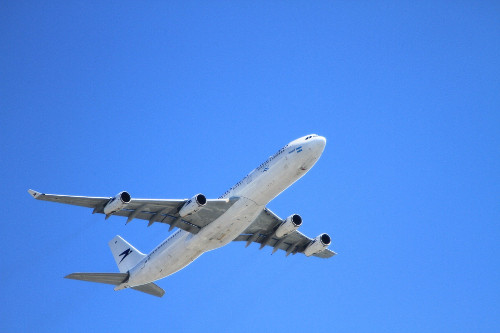GET IN TOUCH
Please contact us for more information. Our email is monitored seven days a week and we will get back to you shortly.

If an airplane passenger suffers an injury as a result of an accident on an international flight or itinerary, their claim for damages is governed by the “Convention for the Unification of Certain Rules for International Carriage by Air”, frequently called the “Montreal Convention” for short. The Montreal Convention establishes uniform liability guidelines for air carriers and provides the mechanism for compensating passengers following accidents on international flights.

In previous cases decided under the Montreal Convention, claims for purely mental distress could not be brought against a carrier unless that mental distress resulted from a physical injury that took place on board the aircraft or in the course of any of the operations of embarking or disembarking. There must have been a “causal connection” between the physical injury and the mental injury (see, for example, Wettlaufer v. Air Transat A.T. Inc., 2013 BCSC 1245). However, the 2017 U.S. Court of Appeals for the Sixth Circuit Decision in Doe v. Etihad Airways (Doe v. Etihad Airways, P.J.S.C., No. 16-1042 [6th Cir. 2017]) seems to have departed away from “causal connection” test and indicates that mental injuries accompanying physical injuries as a result of an accident may be compensable.
In Doe, the plaintiff was on an international flight from Abu Dhabi to Chicago with carriage performed by the defendant airline. Doe’s tray table remained in the open position during the flight as the knob used to secure the tray table had fallen off. Doe placed the knob into the seat pocket in front of her. When in-cabin flight attendants asked Doe to stow her tray table prior to landing, Doe attempted to explain the situation and in the process of reaching into the seat pocket for the knob, pricked her finger on a hypodermic needle left by a passenger on a previous flight. Doe sued the carrier for the physical injury caused by the prick, and the mental distress from fear of contracting a disease.
The Sixth Circuit Appeals Court reversed the decision of the District Court which granted partial summary judgment in favour of the carrier against the mental distress claims of the plaintiff. In doing so, the Appeals Court decided that a physical injury is still needed to recover mental distress but it does not need a “causal connection” to the mental injury. In other words, the emotional trauma does not need to be a direct cause of the physical injury; it simply needs to be traceable to the injury that occurred due to the accident.
The decision in Doe has widened the possible compensation award for those passengers injured because of accidents during carriage, embarkation or disembarkation. It must be understood that although Doe has modified the prevailing understanding of Article 17 of the Montreal Convention, it does not mean that mental injury without a corresponding physical injury caused by an accident will not attract a damage award.
If you were injured during a flight or while embarking/disembarking a flight on an international itinerary, contact an experienced personal injury lawyer today. We will ensure that you receive the compensation you’re entitled to.
Have a question about this topic or a different legal topic? Contact us for a free consultation. Reach us via phone at 250-888-0002, or via email at info@leaguelaw.com.